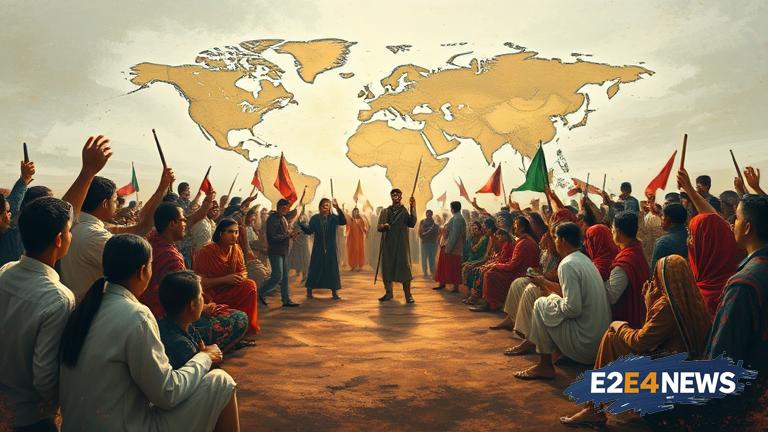The Rohingya ethnic cleansing crisis has been an ongoing issue for several years, with thousands of Rohingya Muslims being forced to flee their homes in Myanmar due to violence and persecution. Bangladesh has been at the forefront of providing aid and shelter to these refugees, but the country’s government has emphasized that ending the ethnic cleansing is a global responsibility. The international community has been urged to take concrete steps to address the root causes of the crisis and ensure that those responsible for the atrocities are held accountable. The Rohingya people have faced decades of discrimination and violence in Myanmar, and the situation has only worsened in recent years. In 2017, a military crackdown in Myanmar’s Rakhine state led to the displacement of over 700,000 Rohingya, with many fleeing to neighboring Bangladesh. The refugees have reported widespread human rights abuses, including rape, torture, and murder. The Bangladeshi government has been working to provide aid and shelter to the refugees, but the country’s resources are being stretched to the limit. The international community has provided some assistance, but more needs to be done to address the crisis. The United Nations has described the situation as a ‘textbook example of ethnic cleansing,’ and has called for those responsible to be held accountable. The Myanmar government has denied any wrongdoing, but the evidence suggests that the military has been involved in a systematic campaign of violence and intimidation against the Rohingya. The international community has imposed some sanctions on Myanmar, but more needs to be done to pressure the government to take action. The Rohingya people have the right to return to their homes and live in safety and dignity, but this will require a concerted effort from the international community. The crisis has also had a significant impact on regional stability, with the potential for further violence and instability if left unaddressed. The Bangladeshi government has called for a comprehensive solution to the crisis, including the repatriation of the Rohingya refugees and an end to the violence in Myanmar. The international community must take a stronger stance on the issue and work towards a lasting solution. The Rohingya people deserve justice and protection, and it is the responsibility of the global community to ensure that they receive it. The crisis has also highlighted the need for greater international cooperation and coordination to address global challenges. The United Nations and other international organizations have a critical role to play in addressing the crisis and ensuring that those responsible are held accountable. The international community must also work to address the root causes of the crisis, including poverty, inequality, and social injustice. This will require a sustained effort and commitment to ensuring that the rights and dignity of all people are respected and protected. The Rohingya ethnic cleansing crisis is a stark reminder of the need for greater international cooperation and action to address global challenges and protect human rights. The global community must come together to address this crisis and ensure that the Rohingya people receive the justice and protection they deserve. The crisis has also had a significant impact on the environment, with the influx of refugees putting a strain on local resources and infrastructure. The international community must work to address the environmental impact of the crisis and ensure that the rights of all people are respected and protected. The Rohingya people have the right to a safe and dignified life, and it is the responsibility of the global community to ensure that they receive it.
